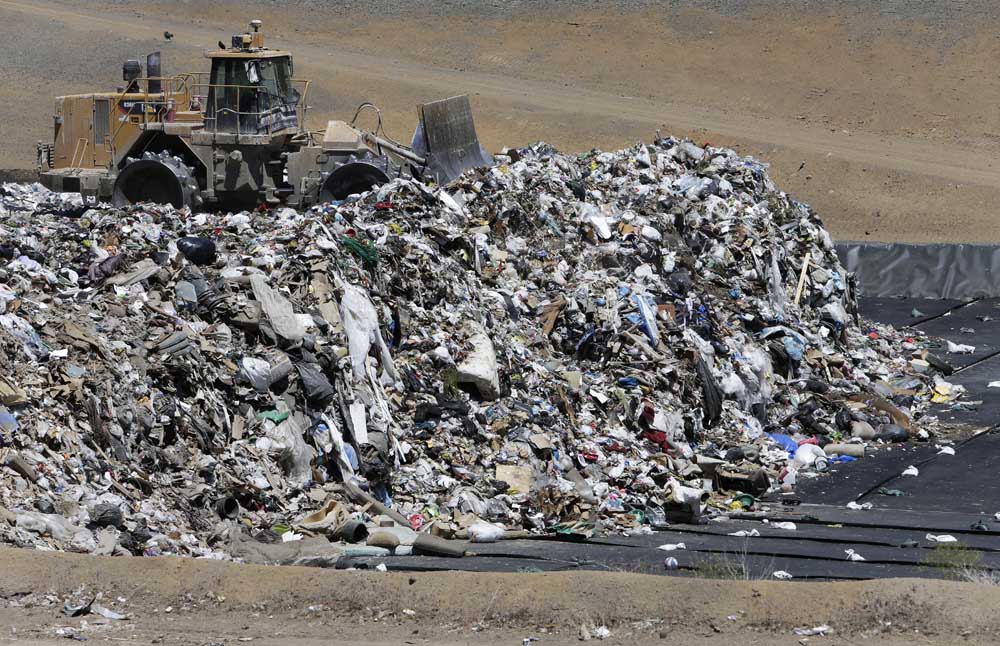Deschutes County looks to expand composting, recycling
Published 12:00 am Sunday, July 1, 2018

- (Bulletin file photo)
Deschutes County may expand recycling and composting programs to stave off the coming closure of Knott Landfill, deferring the increased cost of shipping waste elsewhere. The county’s solid waste department expects the landfill, which sits on 135 acres just east of Bend, will be full by 2029. County officials are trying to decide what to do with waste when Knott Landfill can no longer take it. In the meantime, the department intends to divert more waste from the landfill.
“If it’s successful, it will give us some time, but it won’t be a significant impact,” said Timm Schimke, director of the county’s solid waste department.
Trending
The county’s solid waste management plan, a portion of which Schimke shared with the Deschutes County Commission last week, follows the Oregon Department of Environmental Quality’s hierarchy for solid waste: reduce production, then reuse what can be reused, recycle or compost what can’t, recover energy through methods such as burning waste and finally dispose of the remaining waste. The federal Environmental Protection Agency has a similar pyramid for food waste.
Yard debris and food waste account for much of the garbage that ends up at Knott Landfill. The county estimates that it gets nearly 42,000 tons of food and about 6,500 tons of yard waste each year. Wood and compostable paper make up roughly another 32,000 tons per year.
Knott Landfill offers composting, but it might want to expand the programs, Schimke said. Composting efforts would focus on yard waste and plant-based food, which are relatively inexpensive to process and don’t smell as bad as meat or dairy. Smell is an important consideration given the landfill’s proximity to town.
Deschutes County could add separate food/yard waste bins, as cities like Portland and Seattle do. The county accepts compostable materials at the landfill, but many people throw their leaves and grass clippings in with their trash, Schimke said.
Commissioner Phil Henderson said he didn’t see a need for Deschutes County to follow the leads of Portland or Seattle.
“As a representative of the public, I don’t want to be on the leading edge of this,” Henderson said. “I don’t want to be regulating people.”
Trending
Seattle in 2015 became the first city in the country to fine homeowners who don’t properly sort their garbage. Deschutes County will focus on education instead, Schimke said.
The county could invest $12 million to $15 million in a mixed-waste material recovery facility, a sorting facility that uses a mix of machines and human workers to sort recyclables from trash. The recovery facility would allow the county to divert recyclables from the landfill even if people throw them in with their garbage, and it could save money in the future if garbage needs to be shipped further away.
The department hasn’t identified whether it will be able to build another landfill in Deschutes County or elsewhere in Central Oregon, or whether it will need to ship garbage out of the area.
Knott Landfill recently opened its seventh of nine available cells, or self-contained, lined parcels. This one is expected to last two to three years, Schimke said.
“We’ll get 11 years out of these last three cells,” Schimke said.
The cells are expensive — opening the most recent one cost about $3.2 million — because they require excavation and a series of liners that prevent waste, moisture or gas from getting into the ground.
— Reporter: 541-633-2160; jshumway@bendbulletin.com








